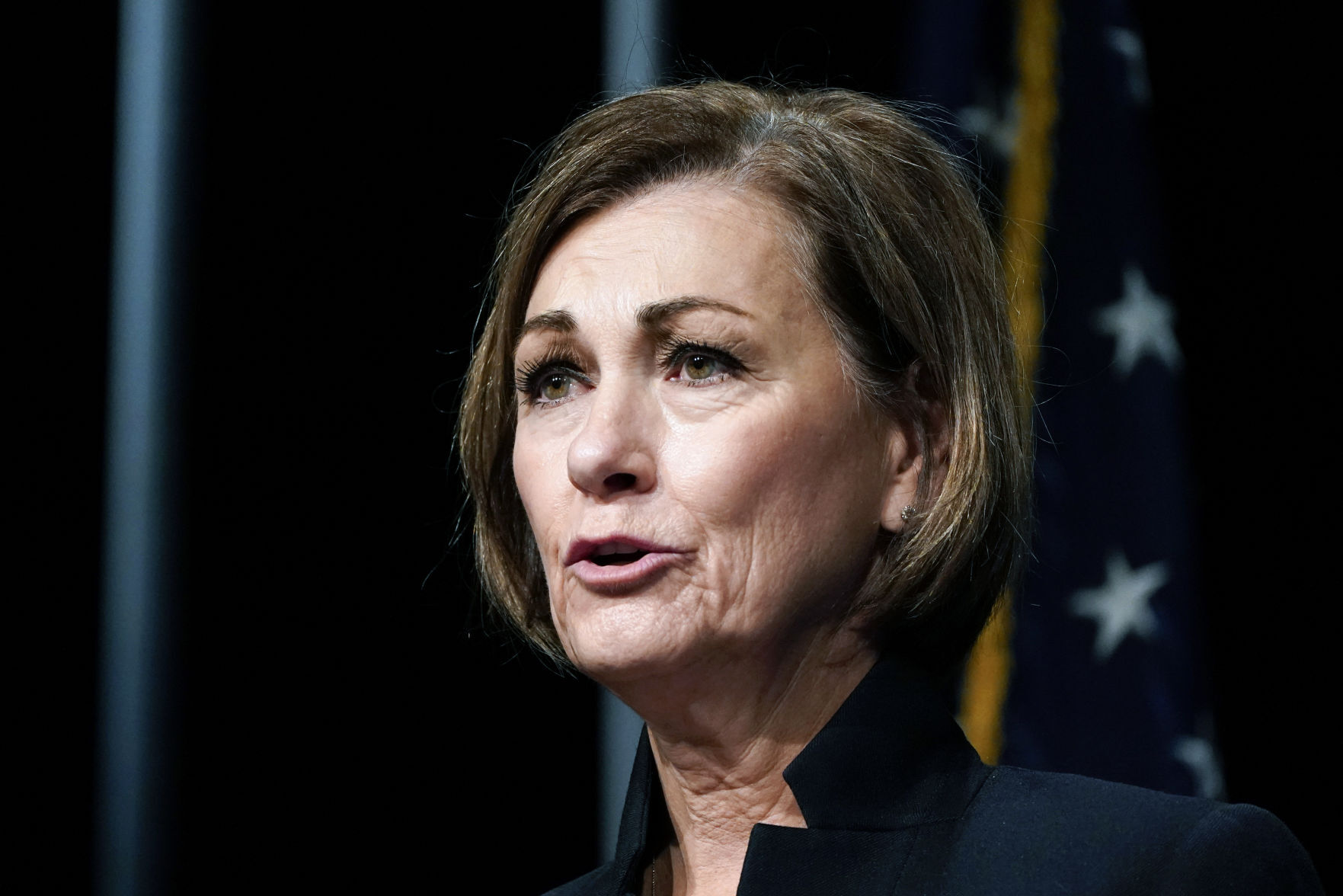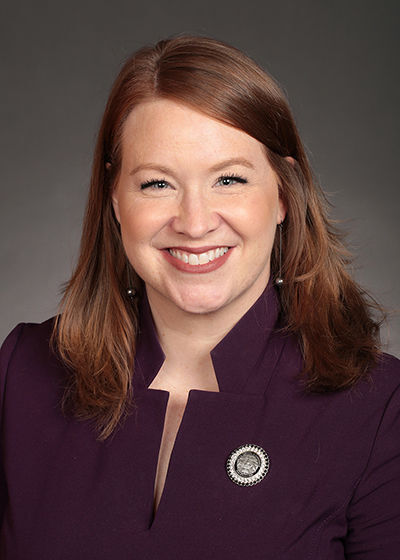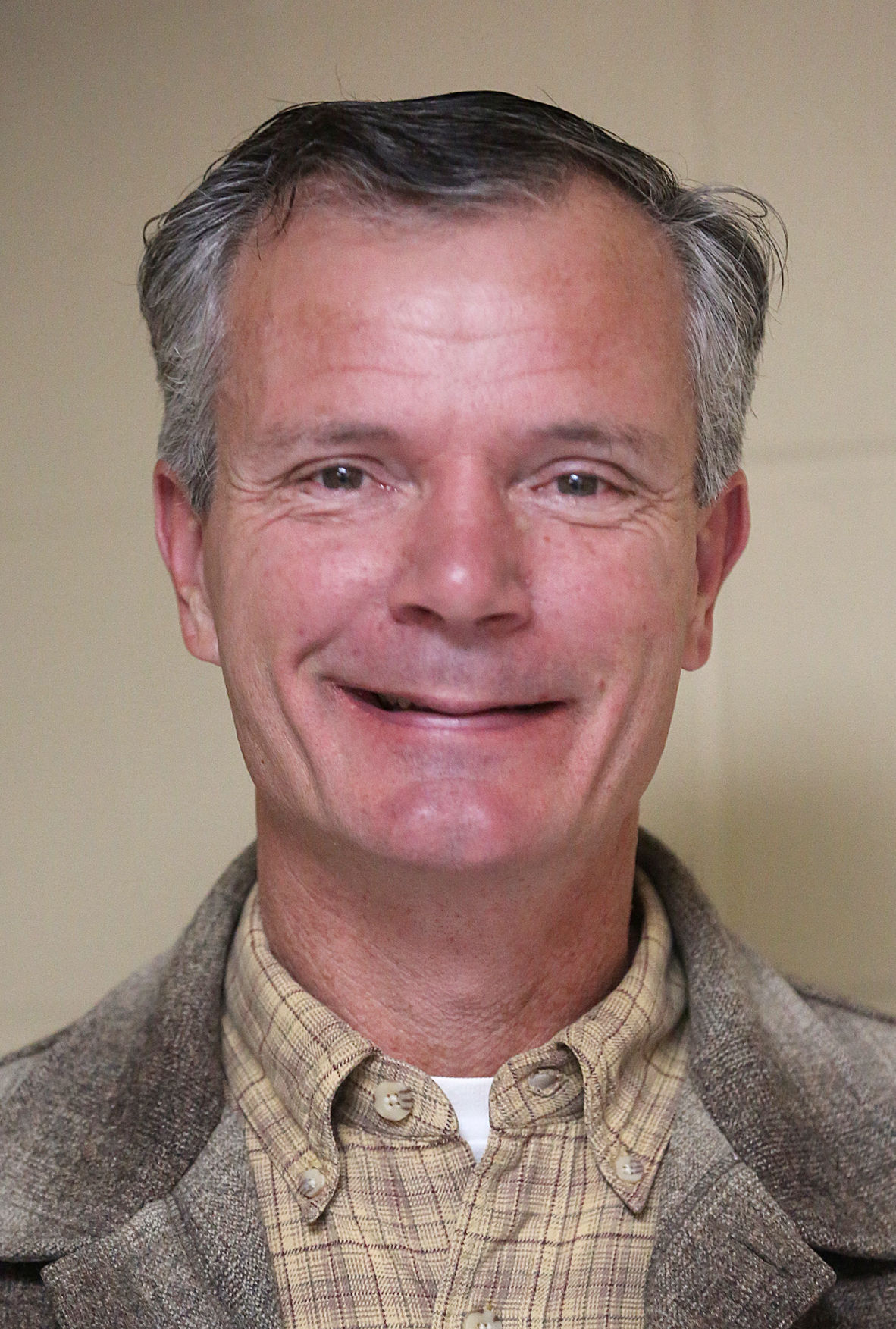Iowa Gov. Kim Reynolds on Tuesday announced that the state will end its participation in federal, pandemic-related unemployment-benefit programs next month.
Reynolds said the state has more available jobs than unemployed people and framed supplemental unemployment benefits as a primary reason for the disconnect.
“Federal pandemic-related unemployment benefit programs initially provided displaced Iowans with crucial assistance when the pandemic began, but now that our businesses and schools have reopened, these payments are discouraging people from returning to work,” Reynolds stated in a press release.
Iowa will continue to pay regular unemployment claims.
Claimants who have exhausted their traditional 26 weeks of unemployment benefits and now receive benefits through the federal Pandemic Emergency Unemployment Compensation program will no longer be eligible for payments after June 12. On that same date, Iowa will no longer issue federal supplemental $300 weekly payments to claimants under the Federal Pandemic Unemployment Compensation.
Such assistance was previously slated to end in early September.
The move prompted a wide range of responses from employers, economic development officials and those struggling to find work.
Pros and cons
The Iowa Restaurant Association applauded the action, predicting it will “be a catalyst” to bring many workers back to the sector.
Anthony Lehmann, who owns a pair of Burger King restaurants in Dubuque, echoed that sentiment.
“It’s certainly something we were hoping for,” he said. “Now, we’ll see if it makes a difference.”
Lehmann said it has “always been challenging” to find enough workers, but those problems have continued to grow during the pandemic.
About three or four months into the pandemic, Lehmann observed a decline in the number of applications that his restaurants were receiving. Toward the end of 2020, “the bottom dropped out of the labor market,” he said.
Lehmann said demand for Burger King products is high, but he doesn’t have the workforce right now to meet it. This has resulted in frequently closing his restaurants earlier in the evening than he would prefer.
He called the expiration of the supplemental benefits “a step in the right direction” but said it won’t be a silver bullet.
“I don’t think there will be an immediate impact,” he said. “I think the impacts will be delayed a bit, and they will be subtle.”
Rick Dickinson, president and CEO of Greater Dubuque Development Corp., acknowledged that most business owners were hoping for the supplemental benefits to end, and he agreed that this extra support might have dissuaded some from re-entering the workforce in recent months.
But he emphasized that other factors are greater contributors to the current workforce shortages.
In many instances, he noted, people who are currently unemployed aren’t properly trained to immediately fill positions that are open today. On top of that, available positions might not pay wages that are high enough to convince some people to re-enter the workforce, such as parents who would have to pay for child care expenses if they no longer stay home.
“We’re kidding ourselves if we think these (supplemental benefits) are the primary cause of this,” Dickinson said.
Iowa Rep. Lindsay James, D-Dubuque, responded to the governor’s announcement with a Facebook post that read: “I think my husband, Christopher B. James, has made an astute observation: Sure looks like ‘rich business owners are annoyed they can’t find anyone to hire for low wages, so I’m (the governor) taking unemployment away from poor people so they will have to go back to work.’”
Struggles continue
Randy Forrest, of Cascade, Iowa, said he previously worked for a car dealership in Dubuque but lost his job during the pandemic.
Forrest said the supplemental benefits have been critical, given the fact that he is raising children who are 12 and 14 years old and is trying to keep up with the rising costs of everything from groceries to utilities.
While he sees a multitude of available jobs, many don’t pay wages that would allow him to support a family, he said. In other scenarios, he believes his age puts him at a disadvantage.
“Each week, I am calling about two or three different jobs and trying to get interviews,” he said. “But I am 66 years old. I don’t think companies view me as a prime candidate.”
For those who work directly with needy residents, the notion that unemployed Iowans have had an easy lifestyle during the pandemic doesn’t ring true.
Rick Mihm, executive director of Dubuque Rescue Mission, said the homeless shelter in downtown Dubuque has been filled to capacity throughout the pandemic, though he acknowledged that capacity decreased due to social-distancing measures.
Mihm said the number of local residents seeking free meals has increased slightly since March of last year, and he believes that increase would have been far more pronounced if not for the rapid increase in the number of entities that offered food assistance during the pandemic.
“I think the extra assistance has been really, really helpful,” he said.
In addition to providing food and shelter, Dubuque Rescue Mission helps its clients navigate the labor market and find jobs. Mihm said he is hopeful that this task will be easier given the current state of the job market.
“I think there is more opportunity to land a job — and land a better-paying job,” he said.
Reynolds on Tuesday joined other Republican governors who have announced in recent weeks that their states are also cutting that additional federal unemployment benefit, including Arkansas, Missouri, Mississippi, Montana and South Carolina.
In Illinois and Wisconsin, which are led by Democratic governors, that possibility seems less likely.
Grant County (Wis.) Economic Development Corp. Executive Director Ron Brisbois said there are no indications that Wisconsin officials are on the verge of cutting these benefits.
“I have heard hope for that from business leaders, but I have not heard talk of that occurring from government leaders,” he said.




